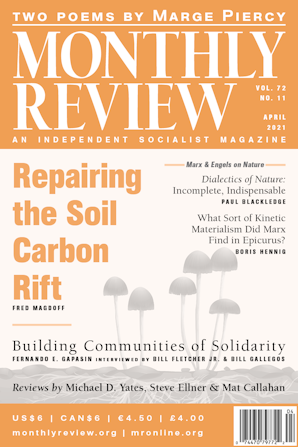Also in this issue
- Repairing the Soil Carbon Rift: Enhancing Agriculture and Environment
- Building Communities of Solidarity
- History comes in bad cycles
- I wake to the possible
- What Sort of Kinetic Materialism Did Marx Find in Epicurus?
- These Brothers Chose Well
- Socialist Practice and Transition
- Was Folk Music a Commie Plot?

